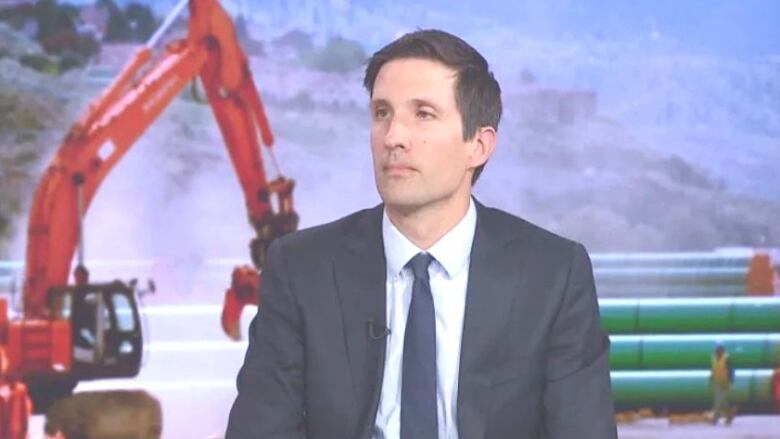Trans Mountain pipeline legal odds in Trudeau's favour now, law professor says
Pipeline opponents face uphill battle, according to Martin Olszynski, resource law expert

Even beforeJustin Trudeau's Liberals again approved the Trans Mountain pipeline expansionthis week, opponents vowed to launch further legal challenges but the government may have the upper hand this time.
On Tuesday, Trudeau and his cabinet approved the project, a crucial next step for the much-delayed pipeline project designed to carry nearly a million barrels of oil from Alberta's oilpatch to the B.C. coast each day.
The cabinet concluded that, while the pipeline has the potential to damage the environment, it's in the national interest and could contribute tens of billions of dollars to government coffers and create and sustain thousands of jobs.
Critics immediately threatened legal action to try to halt the project once again nearly a year after the Federal Appeal Court had stopped it, citing inadequate Indigenous consultation and an incomplete environmental review process.
Martin Olszynski, an associate resource law professorat the University of Calgary, toldCBC Calgary News at 6they could be facing an uphill battle,
This interview has been edited for clarity and length.
Q: Are there any legal avenues that you see open to Trans Mountain opponents that could delay or stop this project?
A: We do all expect, essentially, a re-do of the previous legal challenges. Some First Nations have stated that they will challenge the decision, the approval, on the basis of a failure to adequately consult still. Environmental groups will probably take a run at the report and argue that it is still not consistent with the applicable laws.
The key thing to understand, and this is a general rule in Canada, is that merely challenging a government approval or permit doesn't render that approval in and of itself void. The machinery of government continues. The permit is valid until it's struck down.
What would have to happen is we'd have to see groups filing for injunctions and that would then, potentially, halt construction. Also, at the same time, those are hard to get, as a general rule, and I think that applies in this case.
Q: Considering the government has overcome previous legal challenges on this file, what is the likelihood a challenge would be successful in the long-term?
A: It's tricky to judge that without seeing the arguments that would be put forward on the record.
I think the impression is that the government has already gone back [after the Federal Court of Appeal nullified the project's approval last summer, citing inadequate Indigenous consultations and an incomplete environmental review process]. Perfection is not the standard here, is the short answer to that. We need to recognize that the fact that the government did go back, that there was that additional consideration, there was that additional consultation. And we can talk about the nuances of the doctrine, in this case in Canada, whether consent is required or not, but the Supreme Court has said pretty clearly that consent isn't the test in the sense that we understand consent in a lay sense. So, I think that the odds are more in the government's favour this time around than they were before, for sure.
Q: What is your reaction to the prime minister's announcement that any profits the government makes off this pipeline will go toward unspecified clean energy projects?
A: A lot of it is probably politics.
I couldn't help but think, when the first approval was issued, the prime minister took a lot of pains to point to the climate policies of the then-NDP government here in Albertasaid that that really made this decision possible.
Obviously, we have a change in government here provincially, and so, one way to think about this is maybe the prime minister and the federal cabinet decided to shore up the environmental bonafide use of this decision and really actually put their money where their mouth is.
They've always talked about this idea of getting our resources to market and not really funding our transition. Now, literally, we're going to use this money to fund that transition to clean energy.
Q: How important could the Indigenous ownership piece of the pipeline be?
A: Where it really plays out is in the politics of it and discussions that Indigenous groups will be having with each other.
The key thing to remember is that the government obligation to consult, that is a government consultation. It's not technically on the pipeline proponent even in this case, in the sense of Crown ownership.
At the end of the day, the issue is going to be whether or not the government did as a regulator and as the decision-maker whether it did the things that it had to do to satisfy the constitutional obligation that it has. I think Indigenous ownership is really going to matter in terms of how Indigenous groups relate to one another on this issue.
With files from CBC Calgary News at 6












_(720p).jpg)


 OFFICIAL HD MUSIC VIDEO.jpg)
.jpg)



























































































